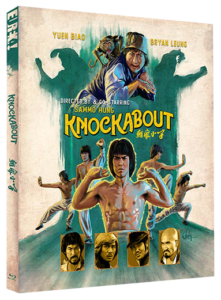Life can be really stressful at times. Despite taking care of everything, there are times when you get an illness or disorder that is not in your control. Mesothelioma is one such problem that arises when you are exposed to Asbestos. This usually happens when you are working at a location where others are working with asbestos.
Mesothelioma is malignant cancer that happens in the covering of your tissues. This is an aggressive and deadly form of cancer. A person who gets affected by the same has to go through grievous stress. Often patients with Mesothelioma are eligible for compensation. They can ask the company responsible for medical compensation.
Again getting the same is not possible without a Mesothelioma lawyer’s help. Here is what you should expect when you work with him.
What is a Mesothelioma Lawyer?
A specialized Mesothelioma lawyer has practiced civil law for multiple years. After they gained the required expertise, they decided to pursue asbestos law. That is how they qualify to become a proper Mesothelioma attorney.
Only a specialized Mesothelioma lawyer has the required expertise in that field. If you suffer from that problem, you must look for a Greensboro Mesothelioma lawyer.
The filing of a Mesothelioma case is a long and complicated process. The attorney you hire must know all the regulations and limitations of a particular state. They also have to understand how to move through the legal process and get things done.
Any lawyer who chooses to deal in Mesothelioma will be compassionate and considerate. He understands the pain of people suffering from asbestos harm. That is why he is prepared to take the case up and fully take it to its resolution.
When to contact a Mesothelioma lawyer
If you are diagnosed with Mesothelioma and know for sure that it is because of asbestos exposure, you can file a claim. You will have to contact a Mesothelioma attorney immediately. Delaying the entire process is not a sensible idea.
Most of the US states have statutes of limitations. They will process your Mesothelioma claim only if you apply within a specific time period after diagnosis. The attorney will also take some time to draft the papers and submit the claim.
Hence first, find out about the time limit for your state. Then contact the attorney and share your medical details with him. If you are filing the case on behalf of a victim who is no more, you will have to do so after the death.
Give your attorney time to frame the case. Only then can you hope to get a fruitful result and satisfactory compensation. A reliable attorney would try and win you decent compensation.
Who all can file the compensation against Mesothelioma?
All those who have been diagnosed with Mesothelioma are eligible for compensation. When you file a lawsuit, you can get enough financial compensation. On the radar are the negligent asbestos manufacturers. The compensation will include all the treatment and other expenses you accrued.
But for that, you will have to prove that your Mesothelioma was caused by asbestos exposure. Naturally, you need to show that you were continuously in contact with the place where asbestos was used.
If the patient is too sick or has passed away, his spouse or child can file a lawsuit. Only a Mesothelioma attorney can guide you on whether you can claim the compensation or not.
What is the price a Mesothelioma lawyer will charge
The Mesothelioma lawyers are paid on a contingency basis. It means you will pay the lawyer only if you win the case. In case the claim is unsuccessful, the lawyer will not charge you anything. Mostly the legal fees are different for different cases. However, you can expect it to stay between 25 to 40% of the total damages.
A qualified Mesothelioma lawyer will collaborate with firms with the resources and create a strong case for you. They coordinate with medical professionals and doctors to show that your disorder arose because of the other party’s negligence. Apart from that, a Mesothelioma lawyer hires industry experts and gets valid testimonies supporting your claims.
How long is the process of filing the case
Most of the Mesothelioma cases are resolved out of the court. It rarely happens that the matter goes to a proper court for resolution. That is why Mesothelioma lawyers try to find solutions to such cases in a year or so.
Yet if you have a lawsuit against a big corporation, that may take a long time. Since the volume of cases of this type is high courts, try to fast-track them now.
You should know the statute of limitations in whichever state where the claim is being filed. Some of the states even expect the plaintiff to raise the claim within a year of getting diagnosed. On the other hand, other states are lenient with the time frames.
What kind of involvement is expected out of me
A Mesothelioma lawyer understands the trauma you are facing. He would not want to increase your stress levels. That is why he does most of the hard work himself. Still, there are some details which you can only provide. This includes:
- Details of your past employment
- Any encounters or exposure to asbestos
- A statement explaining how you were exposed to asbestos-based products
- A detailed list of all your medical expenses incurred
- Record of the pain and suffering you are facing because of Mesothelioma
Mostly you will have to give this information through video interviews. This would be out of court in an informal setup. Whatever details you offer will decide how your case will proceed in court.
Types of claims a Mesothelioma lawyer will file
Now we will tell you about the different kinds of claims that the lawyer may file for you:
In this, the lawyer gets you compensated for any injury suffered while working with asbestos. However, the company which caused you the problem should still be in business.
This is mainly for the relatives of the victim. It can be filed by them and seeks compensation if the victim perished during treatment.
- Asbestos trust fund claims
Sometimes the company responsible shows bankruptcy in order to avoid paying compensation. Victims in such a situation can file an asbestos trust fund claim and get their entitled compensation.
Those war veterans who developed the disease during the service get compensated for the same. They are eligible for compensation from the Department of Veteran Affairs.
Steps to file a claim
These are the steps through which your claim case would be filed in court:
Identifying the culprits
First, the lawyer will have to identify who is responsible for your situation. He will have to trace where you were exposed and which companies were responsible. However, it is possible that your exposure happened many years back. Then it is difficult for them to find out any information.
But again, most of the Mesothelioma lawyers have databases of companies dealing in Asbestos. You will have to sit down with him and figure out which company or companies are responsible.
File the Mesothelioma claim
The lawyer will truthfully tell you your options. He will also tell you which type of claim you must file. You can be eligible for a claim from more than one company which you both will have to decide.
Also, he will know what the statute of limitations for your state is. This means till how long you can file a claim and still get compensation. All the heavy work of your case the lawyer will do for you at this point.
Win compensation
Once the claim is filed, the attorney will ensure that you win the case. During this process, he would want the case to be resolved as soon as possible. A lot of Mesothelioma lawyers hope to get an out-of-court settlement.
Court procedures are lengthy and consume a lot of your time. Apart from that, there is no guarantee that the judge would rule in your favor.
On the other hand, the settlements are quick and highly rewarding. Around 99% of such cases yield positive results. The average compensation given ranges from $1 to $1.4 million. You can even suggest a figure you are expecting.
This compensation could be used for:
- Further treatment
- Compensation against lost wages
- Travel expenditure
- Funeral expenses
- Any other expenses
Conclusion
If you have been diagnosed with Mesothelioma, it is time to get your due compensation. Contact a reliable lawyer who will show you the right way to go about it. At any point, do not delay this process of claim. Also, ensure you have all the evidence of asbestos exposure.
Do not raise a case if you are not sure you were afflicted because of a company’s negligence. This could land you in severe legal trouble. Remember that Mesothelioma is a severe problem. A lot of people are already suffering due to overexposure to asbestos. Such cases, if found genuine, are given a lot of coverage and priority.





















Be the 1st to Comment